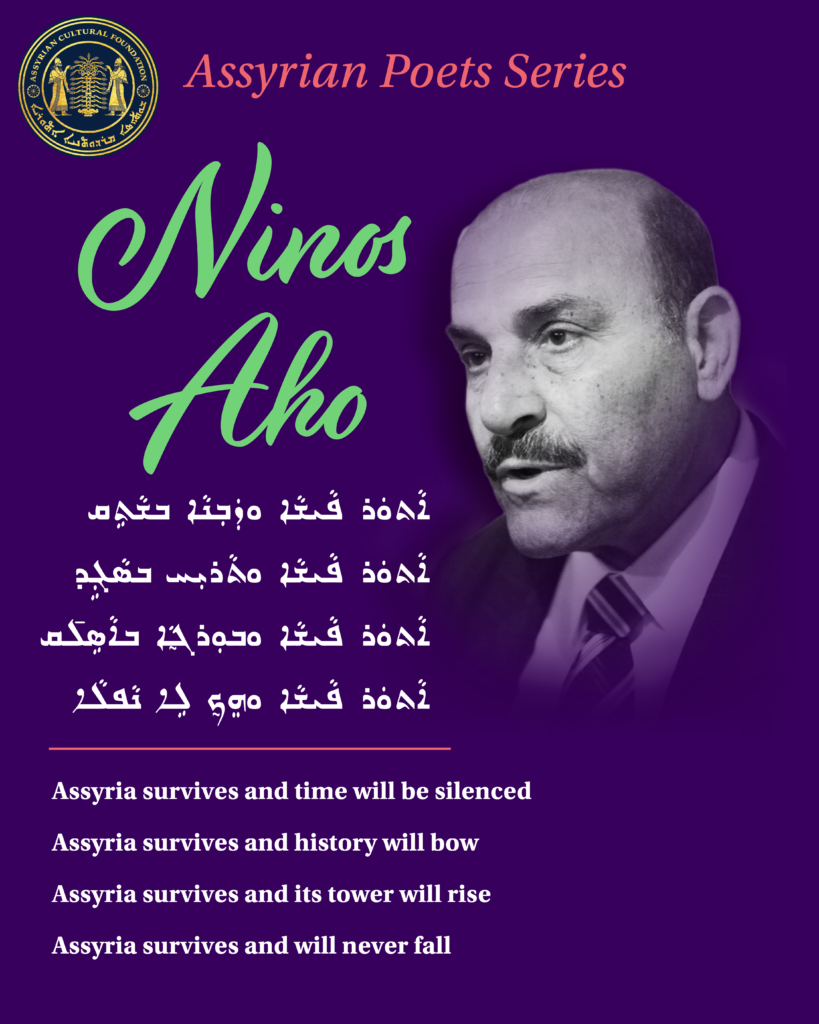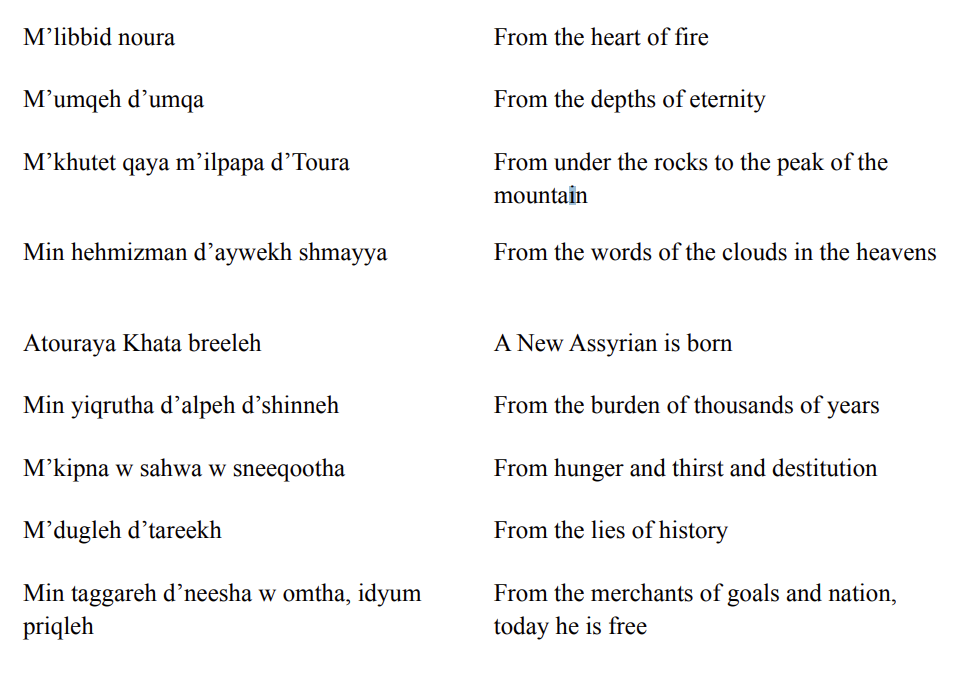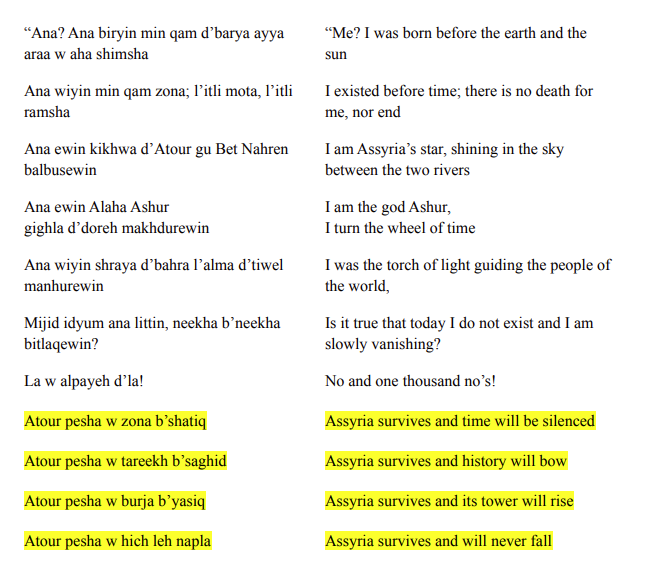Ninos Aho
Date: April 27, 2023

Ninos Aho was born in 1945 in a small village in Syria, Gerkeh-Shama. He relocated to Qamishli and later Damascus in pursuit of continuing education.
In 1971, he left Syria and came to the United States. After living in the United States for over 20 years, Ninos, his wife, and their children decided to go back to Syria to support the Assyrian national movement.
In Syria, he had joined the Assyrian Democratic Organization, an organization founded in 1957, in 1961 during an underground convention. The Organization was dedicated to bringing together the various sects of the Assyrian nation and raising awareness of the Assyrian national identity.
This was especially important in various Middle Eastern countries which sought to forcefully eradicate the Assyrian national identity. In an effort to combat Arab nationalist sentiments, he had the local Syriac Orthodox church choirs perform his poetry and disseminate it to the public.
His fame grew as renowned Middle Eastern musicians such as Ninib A. Lahdo and Wadi al-Safi performed his poetry in songs, amplifying its
reach and impact.
In 2013, Ninos Aho succumbed to complications arising from Non-Hodgkin lymphoma and passed away. His funeral was performed in the Syriac Orthodox Church with the attendance of a bishop of the Church of the East. His legacy of both poetry and activism will endure for many years to come.
Written By: Sarah Gawo
Bibliography
“Assyrischer Poet Und Aktivist Ninos Aho Wegen Blutkrebserkrankung Verstorben.”
Bethnahrin, 17 July 2013,
https://bethnahrin.de/2013/07/16/assyrischer-poet-und-aktivist-ninos-aho-wegen-blutkreb serkrankung-verstorben/.
“The New Assyrian Poem by Ninos Aho.” PoemHunter.com, 27 Sept. 2014,
https://www.poemhunter.com/poem/the-new-assyrian/.
“Ninos Aho: Qeenatha .” Qeenatha.com, https://www.qeenatha.com/artists/NinosAho/359/.
“Ninos Aho: The Great Assyrian Poet.” Ninos Aho | The Great Assyrian Poet, https://www.atour.com/people/20120304a.html.




